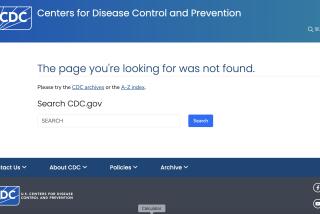Clinton Order Declassifies Millions of Records
- Share via
WASHINGTON — President Clinton signed an executive order Monday stripping the classified label from millions of national security documents.
The order requires the automatic declassification of all top-secret, secret and confidential information 25 years or older, unless it falls into a narrow exemption category, such as revealing the identity of a source of information.
Private experts said it would provide historians with a treasure trove of classified documents, principally from the Pentagon and State Department, about the making of military and foreign policies.
But it would not prevent government officials from continuing to use the secrecy stamp, despite Clinton’s assertion to the contrary, they said.
“While these rules sound good, it’s not clear whether in practice they mean anything,” said Steven Aftergood, a government secrecy specialist at the Federation of American Scientists. For instance, he said, the order will not result in declassification of documents showing how much money is spent annually on intelligence.
Clinton’s order eases the impact of a 1982 directive by President Ronald Reagan that vastly increased the scope of what could be classified. No longer will the government presumptively classify certain categories of information.
“The order will lift the veil on millions of existing documents, keep a great many future documents from ever being classified, and still maintain necessary controls over information that legitimately needs to be guarded in the interests of national security,” Clinton announced.
For the first time, he said, government officials would be required to justify why information is classified. Federal employees would be encouraged to challenge improper classification and would be protected from retribution. The duration of secrecy of most newly classified information would be 10 years, subject to some limitations.
The order omits a provision that would have required officials to use a balancing test before classifying documents, weighing any harm to national security against the public interest in disclosure.
Instead, it merely authorizes, rather than mandates, agency heads to apply the balancing test.
In that regard, “the order is a major disappointment to us,” said Kate Martin, director of the Center for National Security Studies.
“Recent events have shown that some kind of outside, independent accountability is necessary, otherwise the government is going to keep information secret that should be made public,” she said.
More to Read
Sign up for Essential California
The most important California stories and recommendations in your inbox every morning.
You may occasionally receive promotional content from the Los Angeles Times.










